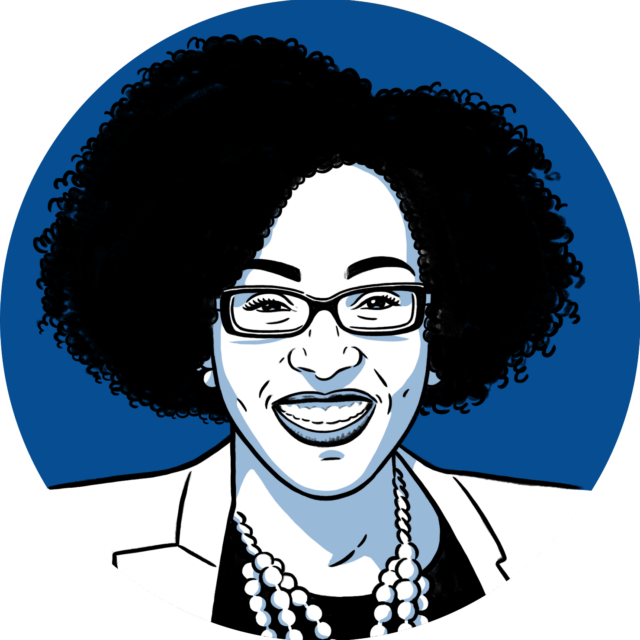More and more, senior leaders are enlisting experts from outside their organization to help them address the issues they’re facing, which can be an excellent approach for resolving the problems plaguing your company—the operative word here being “can.”
Bringing in a third party that specializes in the roadblocks you keep running into, or one who has spent years refining the type of workshop your team would benefit from, can bring new insights and fresh perspectives. But before you hand over the reins and take a seat in the audience, there are a few steps you can take to increase the odds that the workshop is a success and the lessons learned stick with your team for the long term.
The fact is: organizational development coaches aren’t fairy godmothers, no matter what anyone tells you, and in order for any workshop or program to be successful, there is some important work you’ll need to do before you even begin your search for a workshop facilitator. As a leadership development consultant, there are 3 tasks I recommend every leader should check off their to-do list before they schedule an organizational development workshop for their team.
Ask Yourself the Hard Questions
In my first meeting with every one of my clients, I ask them a question along the lines of, “Why can’t you fix the problem yourself?” This might seem kind of harsh, but hear me out. Most of the time this question takes them by surprise. It makes the client sit back and pause for a moment. Why do they need my help? Why can’t they solve this issue on their own?
Let me be clear: there are no wrong answers to this question. Anything from “I’m conflict-averse” to “I don’t feel equipped to lead this discussion” is a perfectly valid response, but having an answer to this question will give your facilitator a clearer understanding of why you’ve brought them in as well as the outcomes you expect them to produce.
Depending on the client’s answer to this question, we might discover that they are, in fact, in need of a facilitator to lead their team through the exercise—or we might discover that the client actually is capable of fixing the problem on their own and that they’re more in need of a consultant, someone to walk through their solution with an outsider’s point of view before the client takes it back to their team.
Answering this question honestly—to yourself first and only then to any development coach you may hire—will allow you to dig deeper into the issue, giving you the opportunity to actually solve the issue rather than simply smooth surface tension.
“The fact is: organizational development coaches aren’t fairy godmothers, no matter what anyone tells you, and in order for any workshop or program to be successful, there is some important work you’ll need to do before you even begin your search for a workshop facilitator.”
Get the Whole Team Involved
One of the primary issues I and others in my field run into is resistance from team members. Depending on what we’re solving for, some people might not think it’s much of an issue, while others might be actively contributing to the problem and are therefore unaware of the issue entirely. When the majority of the team thinks a workshop is a waste of time before we even begin, we’re not going to get very far.
In my experience, the most effective solution is to ask the team what their perspective on the problem is before the workshop even begins. How does the issue impact their ability to do their job? What potential solutions do they see? When people feel involved in the problem-solving process, they’re much more likely to engage in implementing the solution.
As with most instances of resistance, what I encounter from a given team member is typically rooted in fear of the unknown. When we don’t know what to expect, people may be understandably anxious, and that anxiety might in turn manifest as resistance. Sidestep this problem entirely by addressing any potential fears head-on.
Senior Executive DEI Think Tank is a criteria-based membership community for chief diversity officers and senior-level DEI leaders at large organizations to share difference-making tactics, trade valuable resources, and seek the counsel of experienced peers in a private, confidential setting.
Do you qualify?Go With Your Gut
In an ideal world, you’ll have built professional relationships with consultants and coaches before you have a need for them and should be able to pull in others you already know and trust when you’re faced with an issue. But if that isn’t the case, and you’re researching and interviewing facilitators for the first time, I strongly recommend following your instincts and only hiring someone you like and respect. Even if someone is considered “the best,” if you aren’t able to connect with them, it’s better you go your separate ways. Otherwise, you’ll question every suggestion they make, their solutions won’t stick and your team won’t benefit from the workshop.
That said, be aware of affinity bias. It’s common to find comfort in those we share commonalities with but comfort doesn’t usually produce unique solutions. And if the person you decide to hire isn’t able to bring unique solutions, then what are you paying them for? At the end of the day, your own intuition is usually your best resource: trust your instincts and hire the person you trust implicitly.
You’ve Got This
Dealing with breakdowns in communication or addressing how to cultivate an intentional culture can be sensitive topics and therefore produce a lot of anxiety, for both you and your team, but you don’t have to address them alone. Finding the right consultant or coach to lead your organizational development workshop can produce incredible results—but only if you do your share of the work first.
